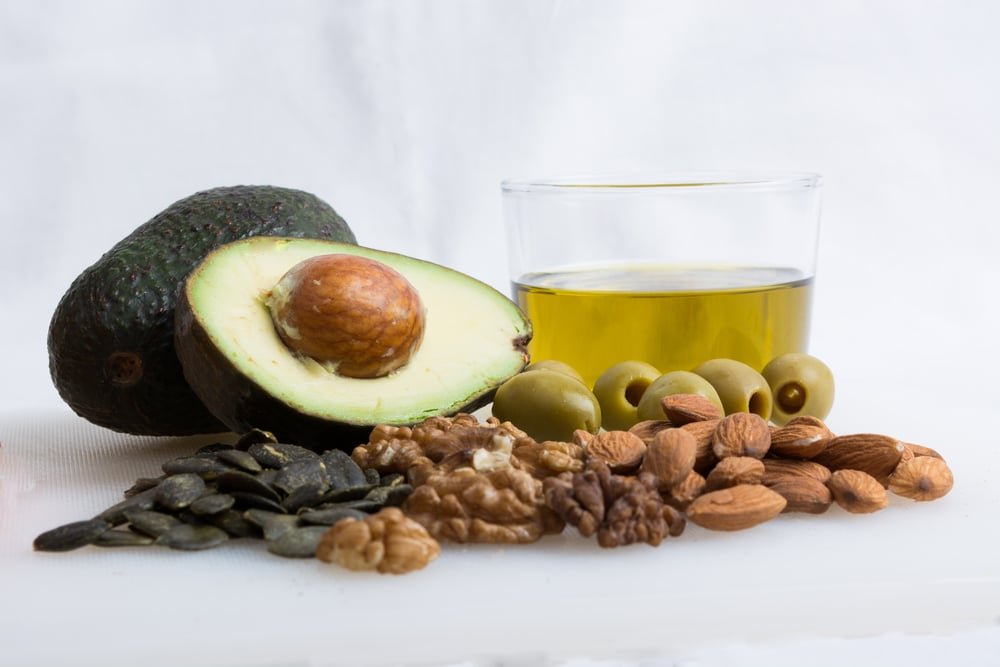Table of Contents
ToggleI’ve always been curious about how our bodies react to the food we eat. The keto diet, which focuses on lots of fat and few carbs, is getting a lot of attention for its benefits. But, how does it affect our cholesterol levels? This is a question many people are asking.
In this article, we’ll look closely at the keto diet and cholesterol. We’ll cover the good, the bad, and the surprises. If you’re thinking about trying the keto diet or want to know more about your diet and heart health, you’ll find this helpful.
Key Takeaways
- The keto diet typically involves a high-fat, moderate-protein, and low-carbohydrate macronutrient composition.
- Studies on the keto diet’s impact on cholesterol have shown mixed results, with some reporting decreased LDL (bad) cholesterol and increased HDL (good) cholesterol, while others have found elevated LDL levels.
- The type of fats consumed on a keto diet plays a crucial role in cholesterol regulation, with polyunsaturated fats associated with decreased total cholesterol and monounsaturated fats linked to increased HDL cholesterol.
- Individuals with pre-existing high cholesterol or genetic predispositions should consult healthcare professionals before adopting the keto diet to ensure their safety and well-being.
- Regular monitoring of cholesterol levels is essential for those following the keto lifestyle to make informed dietary adjustments and maintain optimal heart health.
Keto Diet Explained

The ketogenic, or “keto,” diet is a high-fat, low-carb plan. It aims to put the body into a state called ketosis. This means eating about 75% fat, 20% protein, and just 5% carbs. By cutting carbs, the body uses fat for energy instead of glucose.
Changing Fuel Sources
When in ketosis, the body uses fat for energy, not glucose. This can lead to weight loss, better insulin sensitivity, and help with some health issues. But, experts say we don’t know the long-term effects of being in ketosis.
Starting a keto diet means eating less than 50 grams of carbs a day. This can lead to quick weight loss in the first few months. It also lowers insulin levels, which can decrease cholesterol production.
| Macronutrient | Keto Diet |
|---|---|
| Fat | 55-60% of total daily macros |
| Protein | 30-35% of total daily macros |
| Carbohydrates | 5-10% of total daily macros |
The keto diet has its benefits, but it’s key to work with health experts. They can help make sure it’s done right and keep an eye on health markers like cholesterol.
Get your free keto cookbook (more than 60 amazing keto recipes)
Keto Diet and Cholesterol
LDL and HDL Cholesterol
The keto diet’s effect on cholesterol is complex and varied. Some studies show it can lower triglycerides and raise HDL (good) cholesterol, which is good for the heart. But, its impact on LDL (bad) cholesterol varies, with some studies showing an increase and others no change.
The kind of fats eaten on the keto diet matters. It includes saturated, monounsaturated, and polyunsaturated fats. Doctors say it’s key to watch your cholesterol closely if you have concerns and want to try the keto diet.
| Metric | Keto Diet Impact |
|---|---|
| Triglycerides | Modest reduction |
| HDL Cholesterol | Modest increase |
| LDL Cholesterol | Variable, some increase, some no change |
The keto diet affects cholesterol levels by the fats you eat. It’s important to watch your cholesterol and get advice if you have concerns about the keto diet.
“The impact of the keto diet on cholesterol levels is a complex and sometimes contradictory topic.”
keto diet and cholesterol
The keto diet seems to have a small effect on cholesterol levels for many people. Some may see lower triglycerides and higher HDL (the “good”) cholesterol. But, others might see a big rise in LDL (the “bad”) cholesterol, especially if they have a genetic condition called familial hypercholesterolemia.
This condition can make LDL levels go way up on a keto diet, increasing the risk of heart disease. Doctors stress the need for careful monitoring and personalized advice for those with high cholesterol or a family history of heart issues. They want to know more about the keto diet’s long-term effects on heart health.
Recent studies have shown the keto diet’s complex relationship with cholesterol. A 12-week study with 53 healthy adults found weight loss but no better heart health and less gut diversity. On the other hand, a study comparing ketogenic and low-sugar diets showed the low-sugar group lost body fat and lowered LDL cholesterol without harming their gut microbiota.
| Metric | Keto Diet | Low-Sugar Diet |
|---|---|---|
| Carbohydrate Intake | Less than 8% of daily calories | Less than 5% of daily calories from free sugars |
| Dietary Fiber | Approximately 40% less than control diet | No negative impact on gut microbiome |
| LDL Cholesterol | Potential increase | Decrease |
| Sustainability | Decreased adherence over time | More sustainable for long-term weight loss and health |
The keto diet’s effect on cholesterol and heart health is complex and different for everyone. If you have cholesterol issues or a family history of heart disease, talk to a doctor before starting the keto diet. They can help you make a plan that’s right for you.

Choosing Healthy Fats
The keto diet focuses on lots of fat, but not all fats are the same. It’s good to swap saturated fats from processed foods, red meat, and dairy with unsaturated fats. These are found in olive oil, avocados, nuts, and fatty fish. These fats are good for your cardiovascular health.
Experts say to pick these healthier fats over saturated fats on the keto diet. Foods like avocados are full of heart-healthy fats and vitamins. Nuts like almonds, walnuts, and pecans can lower the risk of many diseases.
Other great fats on the keto diet include flax seeds, chia seeds, and hemp hearts. Also, try olives and olive oil, coconut oil, cacao nibs, full-fat Greek yogurt, and fatty fish like salmon. These foods give you healthy fats and important nutrients for your health.
| Food Source | Nutritional Profile | Health Benefits |
|---|---|---|
| Avocados | Rich in heart-healthy fats, vitamins, and minerals | May support heart health and blood sugar balance |
| Nuts (almonds, walnuts, pecans) | Provide healthy fats, fiber, and protein | Linked to reduced risk of heart disease, cancer, diabetes, and respiratory illnesses |
| Flax seeds | 11g fiber, 7g protein, 18g fat per 42g serving | Beneficial effects on heart disease, cancer, and diabetes |
| Hemp hearts | 15g fat, complete plant-based protein per 3 tbsp | Offer essential amino acids and anti-inflammatory properties |
| Chia seeds | 4g fat, 4g fiber per 1 tbsp | May prevent chronic conditions due to anti-inflammatory effects |
| Olives and olive oil | Heart-healthy fats and compounds that reduce inflammation | May prevent chronic diseases like heart disease and cancer |
| Coconut oil | Rich in medium-chain triglycerides (MCTs) | May facilitate the body’s transition into ketosis and promote weight loss |
| Cacao nibs | 12g fat, 9g fiber per 1 oz | Provide potent polyphenols for anti-inflammatory effects |
| Full-fat Greek yogurt | 6g fat, 13g protein, 6g carbs per 5.3 oz serving | Offers beneficial probiotics for digestive health |
| Fatty fish (salmon, tuna, sardines) | High in protein, omega-3 fats, and vitamin D | Critical for immune function and bone health |
| Eggs | 5g fat, 7g protein per 56g egg | Provide essential nutrients like B vitamins and antioxidants for eye health |
| Butter | Approximately 80% fat, carb-free | May play a role in promoting brain health, particularly butyrate from grass-fed cows |
Choosing these healthy fats helps you meet your fat needs on the keto diet. It also supports your cardiovascular health and cholesterol management.
Conclusion

The keto diet’s effect on cholesterol is complex and sometimes unclear. It may help with weight loss, improve insulin sensitivity, and change triglycerides and HDL cholesterol for the better. But, its impact on LDL cholesterol varies a lot.
For some, especially those with a family history of high cholesterol, the keto diet might raise LDL levels. This could increase the risk of heart disease. Experts stress the need for careful monitoring and personalized advice when trying the keto diet.
They also recommend focusing on healthy fats. More research is needed to fully understand the keto diet’s long-term effects on health and cholesterol. People thinking about the keto diet should talk to health experts. This ensures their diet meets their health needs and goals. It’s important to keep nutrition balanced and support heart health.
FAQ
How does the keto diet affect cholesterol levels?
The keto diet’s effect on cholesterol is complex. Some studies suggest it can boost HDL (good) cholesterol and lower triglycerides. Yet, others found an increase in LDL (bad) cholesterol. The long-term effects on heart health are still unclear. Doctors advise caution for those with high cholesterol already.
What is the ketogenic diet?
The keto diet is a diet high in fat, moderate in protein, and low in carbs. It makes the body use ketone bodies instead of glucose for fuel, a state called ketosis. This can lead to weight loss and better insulin use.
Can the keto diet lower cholesterol?
The keto diet’s effect on cholesterol varies. Some research shows it can lower triglycerides and raise HDL (good) cholesterol. But, its impact on LDL (bad) cholesterol is less clear, with some studies showing an increase.
Is the keto diet safe for people with high cholesterol?
Doctors stress the need for careful monitoring and personalized advice for those with high cholesterol on the keto diet. Those with genetic high cholesterol risks may see a big rise in LDL levels. This could increase their risk of heart disease.
What types of fats should be included in a keto diet?
Switching to unsaturated fats can be good for the heart. Foods like olive oil, avocados, nuts, and fatty fish are good choices. These fats are linked to lower LDL cholesterol and a lower heart disease risk.





